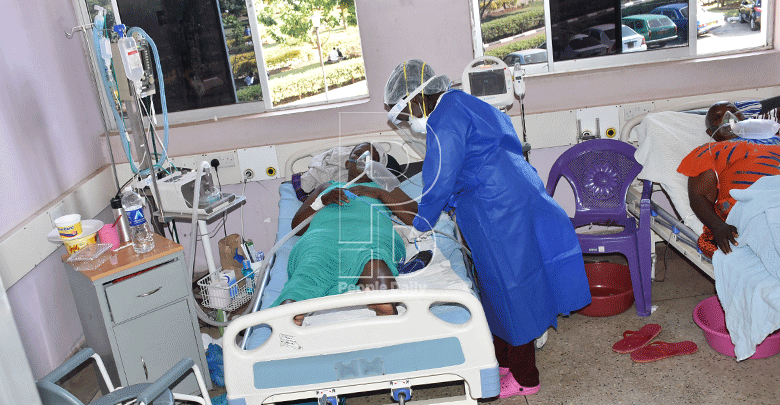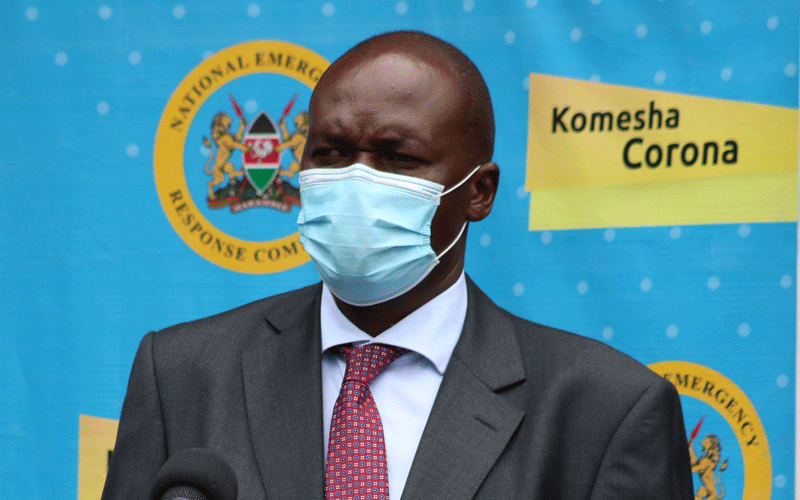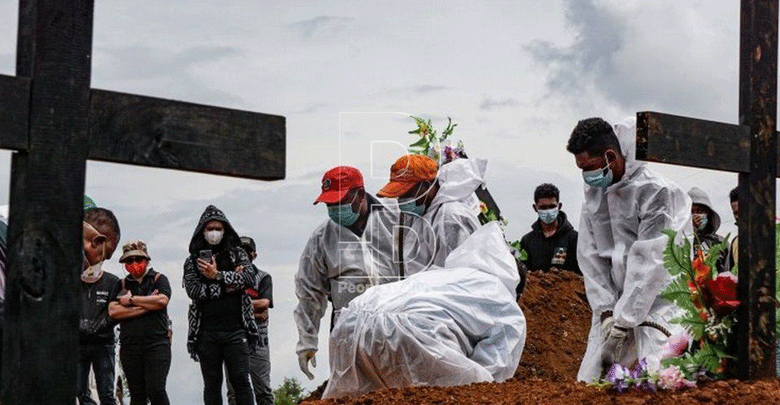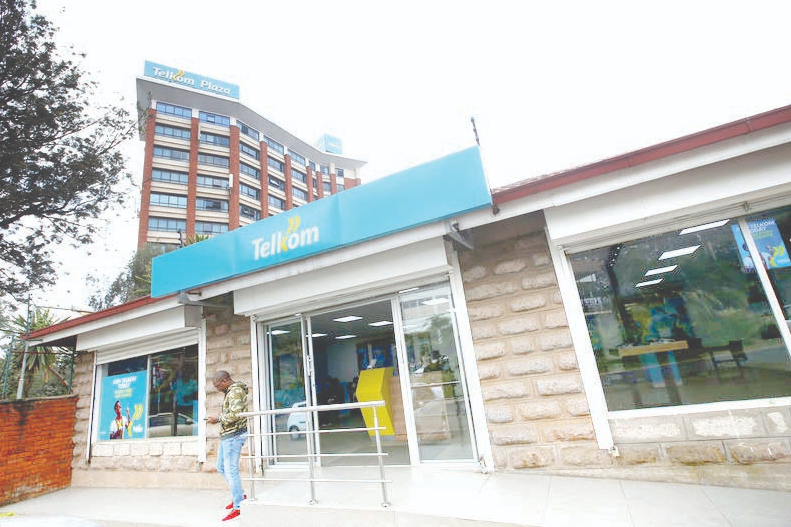Covid cases likely to shoot up in next two months, experts warn

Roy Lumbe and Reuben Mwambingu
Health experts are warning Kenyans to brace themselves for a major upsurge of Covid-19 cases and in the next two months unless they strictly adhere to Ministry of Health protocols.
The experts urged Kenyans to get vaccinated to avoid the dangers posed by the more lethal and highly transmissible Delta variant.
Deputy Director at Kenya Medical Research Institute (Kemri) Prof Matilu Mwau disclosed that Delta variant had spread to almost all the counties, and unless Kenyans take it seriously, the country could witness more “deaths and serious illnesses.”
“The situation is worrisome because the variant is now everywhere in the country and is spreading very fast,” Prof Mwau said.
He revealed that the variant could last for about two or three months before another variant could emerge depending on the number of people that would have been vaccinated and adherence to protocols.
According to Mwau, the strain is very aggressive and highly transmissible making it dangerous especially for the elderly and those with underlying medical conditions.
Prof Mwau warned that the country is likely to witness more hospitalisations and increased mortality among the unvaccinated.
“The virus will keep on evolving and even more transmissible. But for Delta, it is more lethal because it spreads very fast and is very aggressive,” Prof Mwau told People Daily.
Unlike other previous variants, Mwau revealed Delta has a higher viral load with the symptoms manifesting earlier than the previous ones, perhaps within two days or three days after one has been infected.
“It makes it dangerous for people who delay in seeking medical attention and that is why you are seeing people getting sick, collapsing and dying within a short period,” said Prof Mwau, a respected virologist.
He applauded the government’s efforts to secure more vaccines but added that more should be done to accelerate the vaccination.
He disclosed that contrary to the perception on social media, all the known vaccines lower the possibility of one becoming severely ill and dying.
“If people do not wear masks, sanitize and observe social distancing, this is dangerous and we are likely to witness more deaths,” he added.
Blood clots
Dr Githinji Gitahi, the group CEO of Amref Health Africa warned that the rapid spread of Delta would see an increase of cases requiring hospitalisation which the country’s health system may not manage.
“Apparently we have few critical care beds and a fatigued health work force. There is need to vaccinate as many people as quickly as possible, particularly those at high risk,” Dr Gitahi said.
He said that while it is a challenge securing vaccines, there is need for the government to make the jabs available to more people.
Speaking a day after his close friend lost his mother to the disease, Dr Gitahi said that it was unfortunate that the woman had not been vaccinated.
Gitahi said her family had been hesitant to approve her vaccination due to health concerns. He said the woman had high blood pressure and family members feared she might develop blood clots after vaccination.
“The family was reluctant to get her vaccinated just a month ago and now she has passed on,” said Gitahi.
He said the risk of death from Covid-19 is far much worse than fears of blood clots.
“Always seek medical attention as soon as possible to save your life. Let us get vaccinated and watch out for our elderly,” he added.
According to the World Health Organisation, so far, there are four variants of concern globally, namely the Delta, UK, South African and Brazilian.
The Delta variant spreads faster than the others with genomic surveillance revealing that there are 28 Delta variants, six UK variants, one South African variant and another three sub-variants from the main Delta variant.
Surging infections
Meanwhile, the Mombasa County Covid-19 emergency preparedness and response committee has banned treatment of Covid-19 patients at home following reports of a growing number of people who are doing Covid-19 case management of critical patients in their homes.
County Commissioner Gilbert Kitiyo and Deputy Governor Wiliam Kingi said management of cases at home was a “very dangerous practice” and a contributing factor to surging infections.
According to Public Health Chief Officer Pauline Oginga, some people have installed “unlicensed makeshift Intensive Care Unit (ICU) facilities in their homes, where “they are administering Oxygen, intravenous therapy (IV) treatment and other treatments in their homes.”
“It has come to our attention that there are people who are doing case management of Covid-19 patients at home.
The home-based care guideline is very clear at what point someone is supposed to be at home in isolation and at what point a patient is supposed to be admitted to hospital.
However there are people who are now administering oxygen and IV treatment within the homes,” Oginga warned.
“This is risky because there is lack of capacity in terms of skills to monitor these patients and the effect of it is that we are getting late referrals from such entities where they come to hospital after they have run out of options and the outcome is very poor,” she added.
The practice, she said, had contributed to increased positivity rate among the healthcare workers, because most of them are also being involved in giving private treatment to Covid-19 patients in homes.
“If you risk going into a home that has a case and you don’t have Personal Protective Equipment (PPEs) and proper training, then you stand a chance of spreading the virus at your place of work and home,” she said.
Coast General Teaching and Referral Hospital chief officer said the hospital was overwhelmed by cases coming from the community.
“In June, we had a positivity rate of 7.1 per cent and in July we closed with a positivity of 15 per cent,” she said, blaming laxity of measures for the increased spread.














